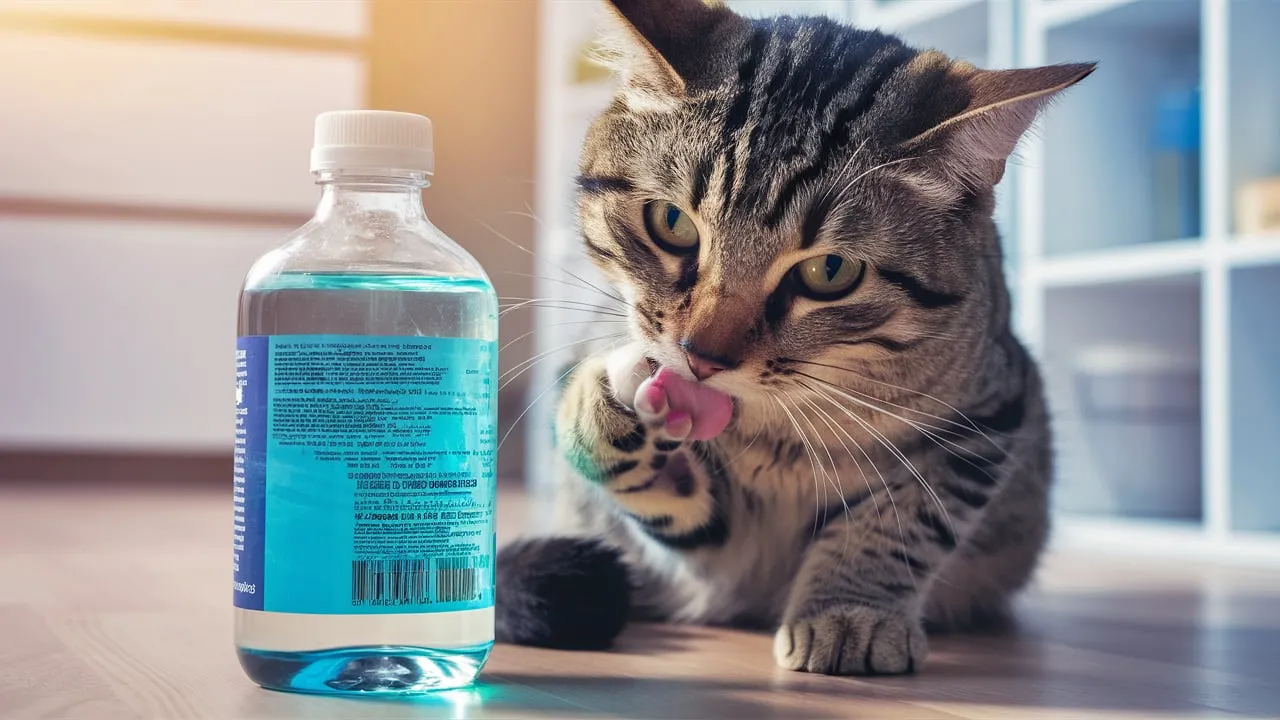Ever bumped your knee and gotten yourself a scrape? Chances are you reached for a bottle of hydrogen peroxide to clean and disinfect the wound. This readily available solution is often associated with wound care, but what about our feline companions? Can hydrogen peroxide be safely used on cats? The answer, unfortunately, is no. While the idea might seem logical, there are hidden dangers associated with using hydrogen peroxide on cats. In this article, we’ll delve into the reasons why this common household product should be kept away from your furry friend, and explore some safer alternatives to ensure proper wound care for your precious cat.
Can You Use Peroxide On Cats

While hydrogen peroxide might be your go-to for cleaning wounds, it’s a big no-no for your feline friend. Applying hydrogen peroxide to your cat’s open wound can actually hinder the healing process by damaging healthy tissue around the injury. When dealing with your cat’s wounds, always prioritize veterinary guidance. Your veterinarian will provide specific instructions on proper wound care, which typically involves cleaning the area two to three times a day with warm water or a vet-approved antiseptic solution. This gentle cleaning removes any discharge and keeps the wound edges clean to promote proper healing. Beyond hydrogen peroxide, there are other household products you should steer clear of when tending to your cat’s wounds. These include herbal preparations, shampoos, soaps, tea tree oil, and rubbing alcohol. Some wounds might require staying open for optimal healing, while others might benefit from bandages to prevent further contamination or self-inflicted irritation caused by licking. In cases requiring bandaging, daily changes are essential to prevent infection. Remember, veterinary expertise is key to ensuring your cat’s wounds heal quickly and comfortably. Don’t hesitate to consult your veterinarian for the best course of action and the safest wound care practices for your precious feline companion.
What Are The Alternatives For Cleaning A Cat’s Wound
While minor scrapes and bumps might seem manageable at home, it’s crucial to seek veterinary attention for deep lacerations or puncture wounds. For these more serious injuries, your veterinarian will likely recommend cleaning the surrounding area with a cat-safe antiseptic solution containing diluted chlorhexidine diacetate or povidone-iodine. These antiseptic formulas, readily available online and at pet stores with pharmacies, help prevent infection without harming your feline friend. When dealing with deep cuts or punctures, resist the urge to apply antiseptic directly into the wound itself. Instead, focus on cleaning the surrounding area to minimize the risk of infection. You can also use a sterile gauze pad to gently apply pressure and slow any bleeding. Remember, for deep wounds, a trip to the veterinarian is essential. They can thoroughly clean and treat the injury, and if an infection is present, prescribe the appropriate course of antibiotics to ensure your cat heals quickly and avoids complications.
Why Might Some Wounds Be Left Open to Heal
There are a couple of scenarios where your veterinarian might opt to leave your cat’s wound open rather than stitching it closed. Firstly, location can play a role. If the wound is situated on a high-mobility area like the face or leg, keeping it bandaged can be challenging and might hinder the healing process. Secondly, the presence of deep infection or contamination within the wound is another reason for leaving it open. Suturing a contaminated wound can trap bacteria and actually worsen the infection. An open wound allows for better drainage and easier application of topical medications, promoting a cleaner and faster healing environment. Ultimately, your veterinarian will carefully assess the wound and choose the closure method that best promotes healing and minimizes the risk of complications for your feline friend.
Is Hydrogen Peroxide Dangerous When Ingested
While the thought of inducing vomiting with hydrogen peroxide might cross your mind if you suspect your cat ingested something toxic, this method is absolutely off-limits for felines. Hydrogen peroxide, sometimes used for this purpose with dogs, can have dire consequences for cats. Ingesting hydrogen peroxide can cause severe irritation and inflammation throughout their digestive system, leading to internal bleeding. In some cases, it can even be fatal. Remember, a cat’s anatomy and sensitivity to certain substances differ greatly from a dog’s. If you suspect your cat has eaten something poisonous, don’t waste time with home remedies. Immediately contact your veterinarian or animal poison control center for guidance on the safest and most effective course of action. Their expertise can make all the difference in ensuring your cat receives the timely medical attention they need.
Conclusion
In closing, we hope this information from Infor Cats has shed light on the question of using hydrogen peroxide on cats. Remember, while it might seem like a handy household disinfectant, it can actually harm your feline friend. For proper wound care or any suspicion of poisoning, prioritize consulting your veterinarian. Their expert guidance and cat-specific treatment plans are essential for ensuring your furry companion’s health and well-being. Don’t hesitate to reach out to your vet – their knowledge and experience are invaluable in keeping your cat happy and healthy!

Related Post
Potential Causes Of Cat Pooping Jelly Like Substance With Blood
Is Laryngitis In Cats Deadly? Understanding Feline Vocal Cord Inflammation
What Is Shaken Cat Syndrome?